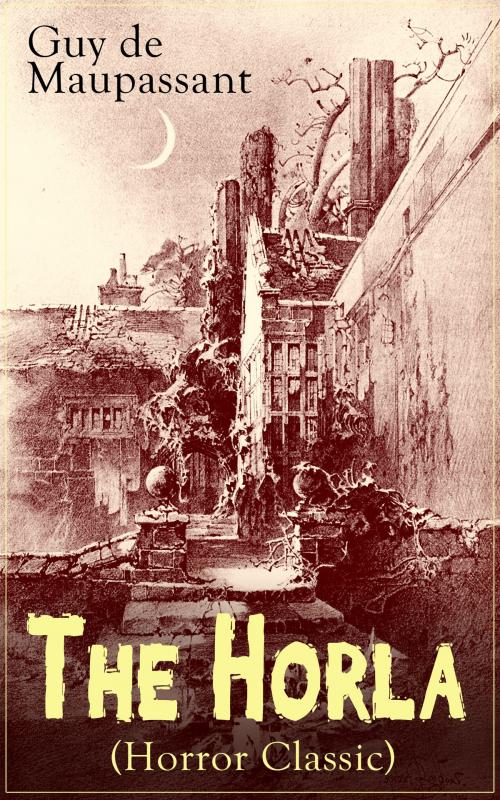The Horla (Horror Classic)
From one of the greatest French writers, widely regarded as the 'Father of Modern Short Story' writing, known for The Necklace, Boule de Suif, Mademoiselle Fifi, Bel-Ami, The Piece of String, A Life…
Fiction & Literature, Horror, Science Fiction & Fantasy, Short Stories| Author: | Guy de Maupassant | ISBN: | 9788026834182 |
| Publisher: | e-artnow | Publication: | April 16, 2015 |
| Imprint: | Language: | English |
| Author: | Guy de Maupassant |
| ISBN: | 9788026834182 |
| Publisher: | e-artnow |
| Publication: | April 16, 2015 |
| Imprint: | |
| Language: | English |
This carefully crafted ebook: "The Horla (Horror Classic)" is formatted for your eReader with a functional and detailed table of contents. The Horla ("Le Horla") is a horror story written in the style of a journal by French writer Guy de Maupassant. The story has been cited as an inspiration for Lovecraft's own "The Call of Cthulhu", which also features an extraterrestrial being who influences minds and who is destined to conquer humanity. In the form of a journal, the narrator, an upper-class, unmarried, bourgeois man, conveys his troubled thoughts and feelings of anguish. This anguish occurs for four days after he sees a "superb three-mast" boat and impulsively waves to it, unconsciously inviting the supernatural being aboard the boat to haunt his home. Guy de Maupassant (1850-1893) was a popular French writer, considered one of the fathers of the modern short story and one of the form's finest exponents. Maupassant was a protégé of Flaubert and his stories are characterized by economy of style and efficient, effortless dénouements (outcomes).
This carefully crafted ebook: "The Horla (Horror Classic)" is formatted for your eReader with a functional and detailed table of contents. The Horla ("Le Horla") is a horror story written in the style of a journal by French writer Guy de Maupassant. The story has been cited as an inspiration for Lovecraft's own "The Call of Cthulhu", which also features an extraterrestrial being who influences minds and who is destined to conquer humanity. In the form of a journal, the narrator, an upper-class, unmarried, bourgeois man, conveys his troubled thoughts and feelings of anguish. This anguish occurs for four days after he sees a "superb three-mast" boat and impulsively waves to it, unconsciously inviting the supernatural being aboard the boat to haunt his home. Guy de Maupassant (1850-1893) was a popular French writer, considered one of the fathers of the modern short story and one of the form's finest exponents. Maupassant was a protégé of Flaubert and his stories are characterized by economy of style and efficient, effortless dénouements (outcomes).















